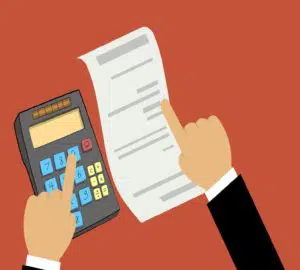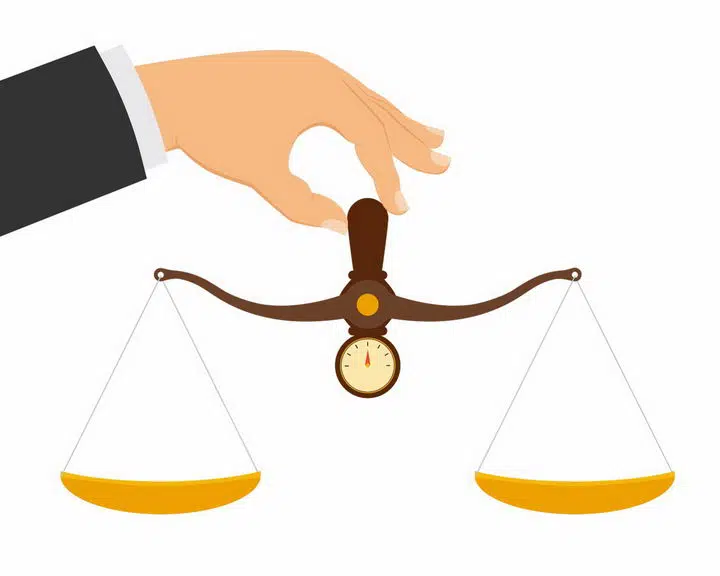Tax Audit on Share Trading and F&O
Complete Online process
 1:1 support on end to end basis
1:1 support on end to end basis
 Absolutely No physical presence is required
Absolutely No physical presence is required
 Assisted Periodical GST filing services are also offered
Assisted Periodical GST filing services are also offered
Go ahead we've got you covered.
We're just a click away
What is share trading and F&O?

Share trading is the practise of buying and selling publicly traded company stock to make a profit. Shares, mutual funds, bonds, and other assets can be bought and sold online without a broker or agent.
Futures and options are the two most widely traded stock derivatives. An agreement to exchange a stock asset at a future date for a fixed price. These contracts attempt to mitigate market risks by securing a price in advance.
Futures And Options(F&O)
Futures
Derivative contracts that require buyers and sellers to trade securities at a specific price and date. The buyer must purchase the underlying security, and the seller must sell it at the contract’s expiration date. Traders use futures contracts to lock in an asset or security’s price. It has an expiration date and a price. For example, NSE stock futures contracts expire on the last Thursday of each month. It is possible to trade contracts for 1, 2, or 3 months. Whether profitable or not, the contract holder must fulfil his obligations by the contract’s expiration date. Traders and investors use futures contracts to protect themselves against market volatility and losses.
Options
Options are derivatives, like futures, whose value is derived from an underlying asset or security. If you own an underlying asset, you can use options to buy or sell it. Unlike futures contracts, options do not force the holder to buy or sell the underlying asset.
Options, like futures, have an expiration date. Every last Thursday of the month, stock options are available with 1-3 month validity. Before the time limit expires, the holder must buy or sell.
Procedures for stock trading and futures and options (F&O)
Investors and traders should understand the fundamentals of trading before diving into futures and options. No matter how hard you try, correctly predicting the future is impossible. It requires a great deal of knowledge, originality, and skill. If you have time, you can also look into the derivatives. It is necessary to understand the tax on f&o trading. In the market, the underlying is a security whose spot price is used to value these products.

Required Documents For ITR filing
- Form 16 from your organization Both Part A and Part B of the Form 16 is required
- Form 26AS – either from your IT portal or through your Net Banking portal
- Trading account statement indicating the outcome from the trading platform or broker
- If the amount of Interest received exceeds Rs. 10,000/- – Bank statement is also required
"losses on futures and options trading must be recorded"On Tax Audit
People who are salaried make the mistake of not reporting this in their tax returns in the future and options. While this may occur as a result of ignorance, it is critical to keep track of all sources of income. As a result, the tax on f&o trading must be reported.
The tax department may send you a letter informing you of your noncompliance. Furthermore, as shown below, declaring losses has tax advantages!

 Kalisankar Saktheeswaran20 April 2023Great service and advice provided while filing the tax declaration. Staffs are very responsive.
Kalisankar Saktheeswaran20 April 2023Great service and advice provided while filing the tax declaration. Staffs are very responsive. SanthanaKrishnan Stark7 February 2023I approached them with few doubts on my tax and loan related queries. After discussing, I have some insights and perspective to look and solve my problems. Thanks!
SanthanaKrishnan Stark7 February 2023I approached them with few doubts on my tax and loan related queries. After discussing, I have some insights and perspective to look and solve my problems. Thanks! Murali S31 December 2022Nice Service
Murali S31 December 2022Nice Service Praas Ravi31 December 2022Very professional and helped me in filing the returns... transparent conversation, prompt in information, accurate in details... Loved their service Thanks Prasanna
Praas Ravi31 December 2022Very professional and helped me in filing the returns... transparent conversation, prompt in information, accurate in details... Loved their service Thanks Prasanna Vinoth Kumar27 December 2022Very good service
Vinoth Kumar27 December 2022Very good service SIVARAMA KRISHNAN S15 December 2022Good response
SIVARAMA KRISHNAN S15 December 2022Good response Azhakhiamanavalan Sadagopan22 November 2022Good service. Appreciate it
Azhakhiamanavalan Sadagopan22 November 2022Good service. Appreciate it SHANKAR VL9 November 2022Very Nice work
SHANKAR VL9 November 2022Very Nice work
Income Tax of trading/business - An understanding
f&o trading tax Unlike capital gains, business income has no fixed tax rate. The net speculative and nonspeculative business income must be calculated after all other sources of income are deducted, such as salary, other business income, bank interest, rental income, and any taxes. Consider this example:
My pay – Rs.10,000
Strictly delivery based equity – Rs.1,000,000
Trading F&O profits – Rs.1,000,000
Day trading – Rs.10,00,000
What is my taxable income for the year?
To calculate my tax liability, I must add my salary and any business income together (speculative and non-speculative).
Unlike salary or business income, capital gains are taxed at a fixed rate.
Profits from F&O trading plus intraday equity trading profits equals total income of Rs 12,00,000 (salary + business).
According to my tax slab, I now owe Rs 12,00,000.
0 – 2,50,000 : 0% – Nil 2,50,000 – 5,00,000 : 5% – Rs.12,500/- 5,00,000 – 10,00,000 : 20% – Rs.1,000,000/-
So total tax: 12,500+1,00,000+60,000=1,72,500
Carry forward business loss For Tax Audit
Non-audit returns are due July 31 and audit returns are due September 30. You can’t carry over company losses if you don’t file on time.
Losses can be carried forward for four years, but only against gains made during that time.
Profits from non-speculative activities can be offset against non-speculative losses. Non-speculative losses can be offset against other earnings in the same year, except salary. Deductions for bank interest, rental income and capital gains must be made in the same year.
Non-speculative investment losses can be carried forward for eight years, but only against non-speculative gains.

Profits from both speculative and non-speculative Business On ITR

Speculative (Intraday equities) profits cannot offset non-speculative (F&O) losses.
You can’t claim zero gains if you lose Rs.50,000 in speculative (intraday equities) trading but make Rs.50,000 in non-speculative trading. No tax on the Rs 50,000 non-speculative profit and no carry-forward of the speculative loss.
Statements of profit and loss and balance sheet
When you declare trading as a business income, you must prepare a balance sheet, profit and loss statement, and income statement for the year. Depending on your revenue and profitability, you may need to audit either of these. Notably, F&O profits are not subject to a special tax rate.

In the case of delivery-based transactions, the type of income is important

If you use the stock market to buy and sell stocks for investment purposes, your earnings are capital gains. If the sale is made as a business, the profit is considered business or profession income.
The particulars of each case will determine whether delivery-based transactions are capital gains or business income.
Investment transactions are subject to the following tax: Delivery-based share capital gains are taxed differently.
Treating Losses Occurring in Futures and Options Transactions
- F&O transactions are not speculative, so the loss from F&O transactions can be recorded off against all other income, except for salary income.
- If a loss is not offset against income in the same financial year, it might be carried forward and offset against future earnings. The loss must, however, be reported in the Income Tax Return, and the ITR must be filed before the income tax return’s due date in order to be carried forward and set against.
Points to be noted
- In F&O trading, you have to figure out what will happen in the future, which isn't easy in any way at all.Trading futures and options carries a high level of risk. When it comes to F&O trading, the higher the risk, the higher the gain. Simultaneously, there are big losses.
- F&O trading is most appealing because of the concept of margin money (paying limited amounts beforehand for huge positions). F&O trading allows you to generate a higher profit (or loss) with a relatively modest quantity of capital.
- If there is insufficient margin money in your broker's account, most brokers will automatically close the position without informing you. Short of margin can result in massive losses, especially during sudden drops in stock markets.
FAQ
That is an excellent question. If you buy shares, hold them for a while, and then sell them, it’s considered an investment. You can choose whether you want to treat it as trade or investment for income tax purposes, and you must do so for the next few years. Intraday trading and futures and options trading will always be recognized as a business. If you consider it an investment, capital gain/loss on the sale of the investment will be considered; otherwise, it will be regarded business income/loss.
Yes, you must report your trading profits and losses on your tax return . The ITR-4 profit and loss account must include trading profits and losses (renamed as ITR-3 from Y 2016-17).The advantage of declaring a trading loss is that you can deduct it from other income (excluding salary) and save tax.
You do not need to provide any documentation to the Income Tax Department or Namma Auditor while filing your return because it is now paperless. The Income Tax Department suggests that you retain these documents in a file with you for a period of six years; consequently, you must retain the proofs.
For profit and loss from futures and options, an ITR form must be filed. Any profit or loss obtained from futures and options trading should be recognised as a business profit or loss and documented accordingly. As a result, the taxpayer must file his or her taxes using the ITR-4 tax form.
To submit your tax return, you’ll need a Class 3 Digital Signature in addition to common files and the tax audit report.
Any profit or loss obtained from futures and options trading should be recognised as a business profit or loss and documented accordingly. As a result, F&O Market transactions would be considered as non-speculative transactions under Section 43(5) and taxed like any other business income.
Share turnover is a measure of how easy it is for people to buy and sell stocks. It is calculated by dividing the total number of shares traded over a certain period of time by the average number of shares that were in existence at the same time.
In the case of income or loss from futures and options, an ITR must be filed. The income/loss from trading in F&O Transactions would be considered a business income/loss, and hence ITR 3 would apply in this case.
There are two prices for each trade: open and close. The profit or loss is based on how much the open and close prices changed. There is a long position in one November Stock “A” Futures contract at the price of $430. If the investor sold November futures for Stock “A” at 450, he would make Rs. 20 per share. A trader would lose 30 rupees for each share of stock “A” if he sold futures on the stock at 400 rupees in November.
Derivatives are financial instruments that do not have a stand-alone value. They are based on an underlying asset’s value. Futures and options are two types of capital market derivatives.

